As a nation, we are not focused on education
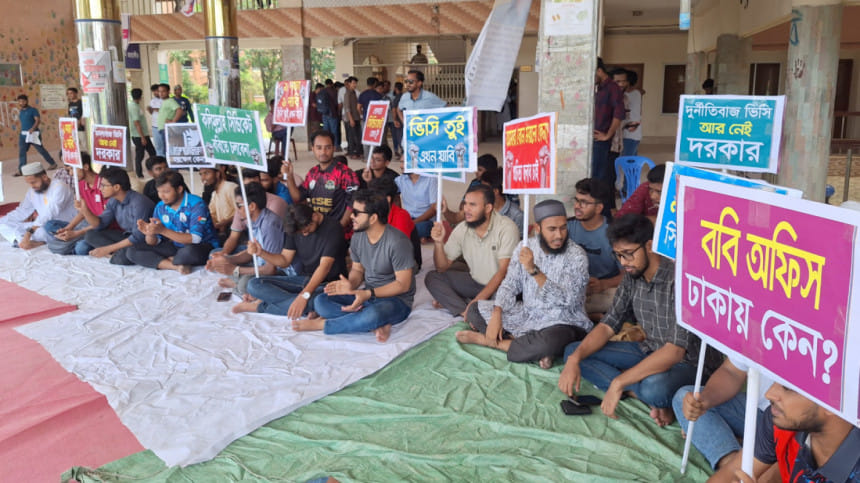
On May 22, this daily reported that National University Vice-Chancellor Prof ASM Amanullah had been attacked by a group of students demanding automatic pass in their degree (pass) examination held in 2022—three years ago. The NU had already permitted grace marks to this batch of students, whose studies had been affected by the COVID pandemic and political unrests in the country. Still, they could not procure the pass mark, so poor were their results. The students had also been given the opportunity to apply for the re-evaluation of their answer sheets. Despite these measures, according to an NU press release, a group of students decided to attack the VC so that he would concede to their demand out of fear. As of this writing, we did not hear of any stern action by the authorities against these students. Immediately following the July-August uprising, we saw a similar demand of "auto pass" by students in the vicinity of the secretariat.
On May 16, we reported about the operational stalemate due to protests by students, and in one case by teachers, at four public universities, namely Dhaka University, Jagannath University, Khulna University of Engineering and Technology, and Barishal University. Disruptions in these universities brought classes, tutorials, and examinations to a halt, jeopardising the future of nearly 70,000 students. In these universities, almost all of the top echelons of administration were removed after the uprising last year.
According to our earlier reports, VCs of 47 public universities who had been appointed during the reign of Sheikh Hasina either resigned or were forced to resign after the changeover of August 5. This included VCs of all our prestigious institutions, i.e. Dhaka University, Jahangirnagar University, Rajshahi University, Chittagong University, and Bangladesh University of Engineering and Technology. Their successors were appointed from the other political spectrum. At least 30 VCs out of the 47 have links with pro-BNP or pro-Jamaat teachers' bodies. So what we saw was a change of guards and not of the practice.
Why did the VCs of 47 public universities have to run away like our politicians? Were they so devoid of academic credentials and so intellectually bankrupt that they had no legitimacy of being appointed as heads of our highest seats of learning—other than sycophancy? The harsh truth is that most of the VC appointments at public universities—if not all—stemmed from political consideration, rather than academic. Sheikh Hasina politicised almost all institutions, but perhaps among the most damaging were the universities, especially the posts of VC. Once teachers saw that writing academic papers, doing original research, upholding academic standards, and creating an open academic environment where creative minds could flourish, did not pave the way for career success, things started to change. They saw clear and everyday evidence that toeing the political line was the surest way to getting foreign scholarships, higher positions, and, sadly, vice-chancellorships. It is then that our universities started crumbling. As the competition to seek favour got tougher—because sloganeering was always far easier that academic rigour—teachers started aligning themselves with student politics, whose support, in the last days of the Hasina regime, they needed to get elected to the Dhaka University Teachers' Association—which was a stepping stone for the VC post. This led to a deep moral bankruptcy. However, there were exceptions, too; we saw many teachers hold their head high, defy power, jeopardise their career, and uphold academic dignity.
When we talk about the success of countries like Japan, South Korea, Taiwan, and most recently Vietnam and China, we mostly focus on their economic success. Never, if ever, do we talk about the contribution of their education systems that provided the crucial backbone to their economic strength. All these countries have spent a huge part of their resources in preparing their youth to face the future and succeed. In the latest and most advanced field of artificial intelligence, the world got surprised by a young Chinese scholar inventing the DeepSeek and upstaging the US. Did it happen by chance? Will it ever happen here? Of course it can. But for that, we have to set our priorities and invest in them.
One can easily imagine the quality of the administration of VCs who came to occupy their chairs as a part of political rewards. This got reflected in recruitment, appointments, promotions, office holdings, and foreign travels. Research grants, which were always meagre, got awarded on the same lines. Thus, university teachers—again, not all of them—became a part of the culture of partisan politics that engulfed each and every institution in the country. The corruption of the academic world that followed dragged the quality of each of our famous universities to the bottom, which was epitomised by former DU VC Prof Md Akhtaruzzaman (2017-2023), whose famous comment that DU was the only university where "you could buy a chop and somucha only for Tk 10." It said it all about his notion of the academic standard of a university.
We have focused only on the situation of our universities, controlling which should have been easy as student leadership is part of this government. The situation of other institutions is the same, if not worse. Here is a story from a well-regarded girls' school. Two girls were caught using their smartphones to copy answers from. When a teacher took away the phones and cancelled their answer sheets, a few of the students got together and started agitating and the school authorities decided to overlook the matter. It is the same in many institutions. Teachers come to class, utter the bare minimum, and leave immediately. The customary chatter and personal conversations between teachers and students have all but disappeared for fear as to who will interpret what and then upload on social media, taken mostly out of context.
It is now nearly 10 months since students left their classes and took to the streets to remove a dictatorial government. That government has been replaced, but the students have not fully returned to their classes. Has anybody asked them to? No adviser, no political leader, and no student leader have told the students that what they have achieved is incomparable and the whole nation is grateful to them, but their future and that of the nation are tied to knowledge and our ability to use them in every aspect of our nation-building through innovation, enterprise, and energy. Where is that message? The chief adviser urged them to return to their classes back in September. For the changes we want to see, they must return to their studies.
When we talk about the success of countries like Japan, South Korea, Taiwan, and most recently Vietnam and China, we mostly focus on their economic success. Never, if ever, do we talk about the contribution of their education systems that provided the crucial backbone to their economic strength. All these countries have spent a huge part of their resources in preparing their youth to face the future and succeed. In the latest and most advanced field of artificial intelligence, the world got surprised by a young Chinese scholar inventing the DeepSeek and upstaging the US. Did it happen by chance? Will it ever happen here? Of course it can. But for that, we have to set our priorities and invest in them. It may sound like a fairytale that in the late 60s, South Korean business teams would visit East Pakistan to learn about textile and steel industries, especially from the Kobe steel complex that the Japanese had set up in Chattogram at that time.
After 54 years of independence, where does our education stand today? We have had several education commissions, several revisions of our curricula, and spent billions, yet we have miserably failed to give the nation an education system that will prepare us for the future. Presently, we have had so many reform commissions, but none on education, reflecting our own sense of priority. In the 21st century world, there is no future without education—not of the old variety, but one that will lead us to the world of AI, quantum computers, blending of technology and all the sciences. A whole new world awaits us. Will we be a part of it or remain an onlooker?
The changes can come not from rhetorics, but from real, concrete, and well-thought-out actions. We remain enamoured with slogans and confined to self-serving narratives. This will not open us up to the possibilities of the new world.
Mahfuz Anam is the editor and publisher at The Daily Star.
Follow The Daily Star Opinion on Facebook for the latest opinions, commentaries and analyses by experts and professionals. To contribute your article or letter to The Daily Star Opinion, see our guidelines for submission.

 For all latest news, follow The Daily Star's Google News channel.
For all latest news, follow The Daily Star's Google News channel. 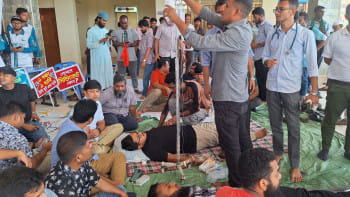
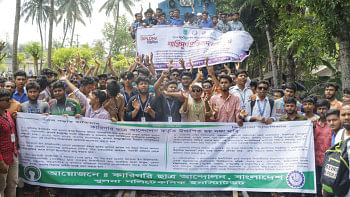


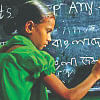
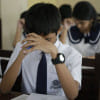





Comments